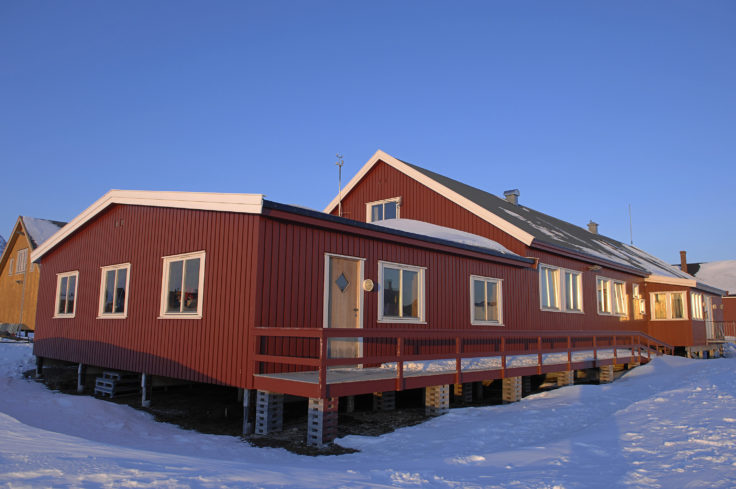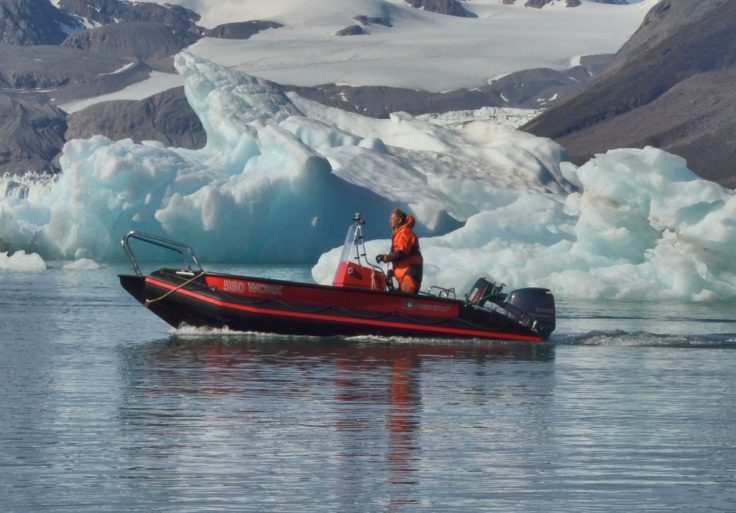Britain’s Arctic Research Station celebrates 30 years of science and monitoring climate change
The Arctic Station in Ny-Ålesund, Svalbard in Norway, the UK’s permanent Arctic research facility, celebrates its 30 years anniversary this week (Tuesday 28 September) as it continues to undertake critical research into how climate change is impacting the pristine environment; with the Arctic warming three times faster than the rest of the world.
The Arctic Station is funded by the Natural Environment Research Council (NERC) and operated by British Antarctic Survey (BAS); it was formally established in September 1991. This week marks its 30th birthday, beginning a year-long celebration of crucial science, innovation and outreach, at a critical time when Arctic science has never been more important on the eve of the COP 26 climate change conference in Glasgow in November.
The Arctic is experiencing climatic warming three times faster than the rate of the rest of the world. Average temperatures in Svalbard are increasing by 4°C in the three decades since the Station was established, the local area and its wildlife are experiencing rapid changes. Some of these changes include:
- rapidly shrinking glaciers (the north side of the local glacier Kronebreen has retreated by 2.6km since the Station was established);
- warming air and seas bringing new bird and fish species (including Mackerel);
- alterations to plant life and growth cycles; and
- increasing marine microplastic pollution.
The Station, named ‘Harland Huset’ (Norwegian for ‘House’), is located in the international science community at Ny-Ålesund, Svalbard, Norway. Part of the northernmost permanent civilian settlement in the world at nearly 79°N the Station is 1230km/765 miles from the North Pole and 3083km/1916 miles from London. The Station sees average summer temperatures of 3°C-7°C and
-13°C to -20°C in winter. It experiences twenty four hour daylight for around four months of the year between April to early September and more or less complete darkness for around 100 days from November to early February.
The Station has supported 16,789 scientist days, 400 researchers and 62 universities and research centres, often with repeated visits.
Professor Dame Jane Francis, the Director of the British Antarctic Survey says:
“Happy Birthday to the NERC Arctic Research Station and many congratulations on 30 years of fantastic and influential Arctic science by British researchers. We look forward to many more years to come.”

Professor Sir Duncan Wingham, Executive Chair of the Natural Environment Research Council, part of UK Research and Innovation says:
“Understanding the breadth and depth of environmental change in the polar regions is crucial to help us gauge the health of the planet as a whole. In the year the UK is hosting COP26, investment in environmental science has never been more important. Congratulations to the NERC Arctic Station and the researchers who have worked there over the last three decades, who are all playing their part in this critical task.”
Nicholas Cox, who has been the Station Leader since 1991, says:
“It has been a great pleasure to work with so many committed and friendly researchers over the last three decades, helping them to get their science done as safely and effectively as possible. The level of international collaboration between scientists in Ny-Ålesund has been absolutely key to its success and long may it continue.”
The Station is open to researchers from across the United Kingdom, as well as their international colleagues. It is dedicated to supporting a wide range of glacier, land, marine and atmospheric science, as well as engineering and innovation research. Investment by UKRI-NERC to coincide with this 30th anniversary will see a range of cutting-edge kit, including remotely operated and autonomous vehicles available for use in the nearby Kongsfjorden, extending the reach and range of their activities for the next generation of Arctic scientists.

Modern-day travel means that the Station can now – weather permitting – often be reached in 36 hours from the United Kingdom, rather than the many days it took in the early 1990s. It now benefits from satellite telephones, high-speed internet and more travel options. Whilst the Station may be less remote, it has never had a more important place in helping us to understand the Arctic.